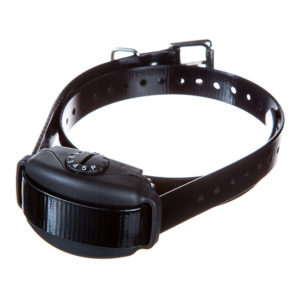
Dog barking is a natural and healthy way for dogs to communicate, but when it becomes excessive, it can be stressful for both owners and neighbours. Many dog owners are surprised to learn just how often their pets bark when left alone. Understanding the reasons behind this behaviour is the first step in managing it effectively.
Why Dogs Bark When Left Alone

Dogs bark for many reasons, and not all barking is problematic. Some of the most common reasons your dog may bark when you’re away include:
Separation Anxiety: Dogs are social animals, and some can feel distressed when left alone. This anxiety can lead to prolonged barking.
Boredom: A lack of stimulation can cause your dog to vocalise in an attempt to entertain themselves or express frustration.
Attention-Seeking: Even when you’re away, dogs may bark to gain your attention or signal a desire for interaction.
Distress: Some dogs become stressed due to environmental changes, loud noises, or unfamiliar situations.
Alarm Barking: Dogs naturally alert owners to perceived threats. Barking at passersby, delivery people, the postie or other animals is often their way of “protecting” the property.
While it’s important to allow dogs to vocalise, prolonged and persistent barking can become a nuisance, especially in suburban environments. For many households, this issue is only noticed when a friendly neighbour brings it to your attention, or when frustration leads to official complaints to the council.
How to Identify Problem Barking

Owners are often in denial and can have no idea their dog’s barking is an issue. The simplest way to check is to observe your dog’s behaviour when you’re not home:
Take a short walk down the street without your dog and listen for the sound of barking.
Use security cameras to observe and record your dog’s behaviour throughout the day.
Once you’ve confirmed that your dog barks excessively, you can take steps to address the behaviour.
Solutions for Excessive Dog Barking

Before considering devices like bark collars, there are several effective methods to manage barking:
Provide Company: Ensure your dog has interaction with other pets or humans to reduce loneliness. Consider working from home or taking your dog to work.
Retraining: Utilise conventional training techniques, incorporating treats and positive reinforcement.
Safe Space: Create a comfortable area for your dog to feel secure while you’re away.
Exercise and Stimulation: Regular walks, playtime, and mental stimulation can reduce boredom-induced barking.
These methods often solve the problem for many dogs. However, when they’re insufficient, a dog barking collar can provide an additional, safe solution.
How a Bark Collar Can Help

A bark collar is more than just a corrective tool; it’s a training device designed to help your dog learn appropriate barking habits. Bark collars provide consistent training when owners are away, making them especially effective for times when you can’t supervise your pet. It’s important to understand that:
- Bark collars do not need to be worn continuously. They are most effective during absences and training sessions.
- Bark Collars are Safe and Effective: The BT7 NoBark Trainer, manufactured by DogWatch and distributed in Australia by Hidden Fence, provides a safe and adjustable solution that allows your dog to bark appropriately for short periods. Many owners notice almost instant results when using this system.

-
 Bark Collar BT7 DogWatch brand$195.00
Bark Collar BT7 DogWatch brand$195.00
By combining conventional training methods with the BT7 NoBark Trainer, dog owners can help their pets reduce excessive barking while still allowing healthy communication, making life more peaceful for both pets and their families.
Excessive dog barking when owners are away is a common issue that often goes unnoticed until it affects neighbours. By understanding the reasons behind your dog’s barking, observing behaviour firsthand, and using a combination of training and safe devices like the BT7 NoBark Trainer, you can ensure your dog communicates appropriately while maintaining harmony at home and in your community.


